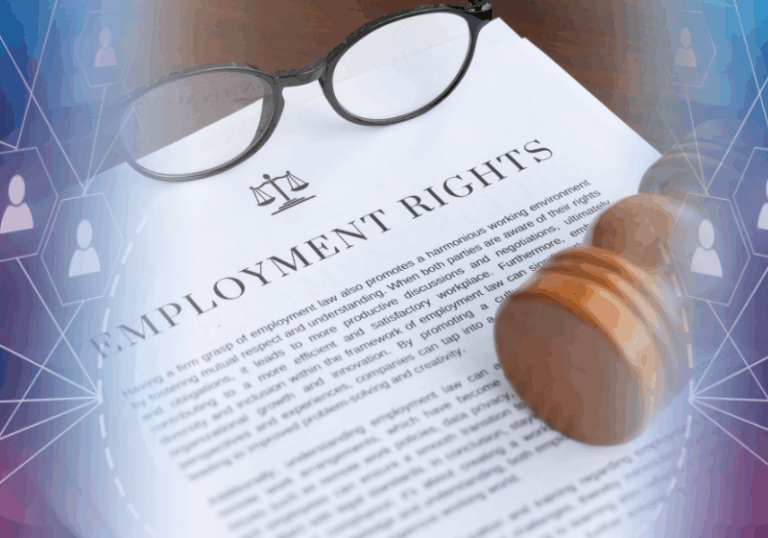National Minimum Wage Breaches: Ten Top Tips for Employers

In light of our newsletter discussing National Minimum Wage (NMW) breaches, we’re highlighting the major factors that employees should consider to avoid falling foul of the law. Indeed, ensuring that your employees receive at least the minimum wage is not just a legal obligation, but also a moral one. Failing to do so can result in serious consequences, and not just financial ones: many businesses across the country have already faced becoming part of the government’s ‘name and shame’ list, resulting in considerable reputational damage as well. So, here we have it: ten top tips for employers on how to avoid NMW breaches.
How to avoid National Minimum Wage breaches
1. Stay Informed About NMW Rates
The first step, and perhaps the simplest one in ensuring compliance with NMW regulations, is to stay up-to-date with the current rates1. The rates change every year, so it’s integral to monitor any updates released by HM Revenue and Customs (HMRC). Failure to pay your employees the correct NMW rate is a breach in itself, so being informed is key.
2. Review Payroll Practices Regularly
Regularly review your payroll practices to ensure that they align with current NMW requirements. Pay especially close attention to variables like overtime, deductions and allowances. Consider seeking professional advice or using specialised payroll software to manage these complexities accurately.
3. Monitor Working Hours Accurately – Even for Salaried Workers
Accurate timekeeping is essential to calculate the correct wages, and a worker on a salary is no exception. It’s still possible for a salaried worker to be paid less than the minimum wage if they work too many hours. For instance, a person aged 23 who was earning £21,000 per year but averaged only two hours per week more than their contracted hours of 40 would effectively be underpaid if just their salary and no overtime was paid out.
That’s why it’s important to implement reliable systems to record employees’ working hours, including breaks. Ensure that you have a robust method for tracking remote or flexible working arrangements as well.
4. Include All Pay Elements
Make sure that all components of an employee’s pay are included in NMW calculations. This includes basic pay, bonuses, commissions, and any other non-cash benefits. Excluding any of these elements can lead to NMW breaches, and dire consequences as a result.
5. Be Wary of Deductions
While certain deductions are lawful, such as tax and National Insurance, others can impact an employee’s NMW entitlement. Deductions for uniform costs or damages to company property, for instance, should be made in a reasonable manner and in full compliance with the law. Unauthorised pay deductions are the second biggest issue in employment tribunals2, and it’s wise to avoid them wherever possible.
6. Implement Adequate Record-Keeping
Maintaining comprehensive records is an essential component of good business practice. Records should cover all the aforementioned details of working hours, pay rates and any and all deductions or allowances. Keeping records for at least three years will also demonstrate your commitment to transparency if you ever find yourself audited by HMRC, and good payroll administration is key to this.
7. Keep Employment Contracts Transparent
Ensure that employment contracts are crystal clear and totally transparent regarding pay rates, working hours, and overtime calculations. Having a well-drafted contract can help avoid misunderstandings and disputes down the line.
8. Train Your Managers and HR Personnel
It is critical to educate your management and HR teams about NMW regulations; without a good knowledge base, they can easily find themselves on the wrong side of the law. They need to understand the legal obligations and how to apply them consistently across the workforce, and regular training can help prevent unintentional breaches – and messy situations.
9. Consistently Audit Your Pay Practices
Conduct regular internal audits of your pay practices to identify potential NMW breaches. These audits should encompass all aspects of pay and employment conditions to rectify any issues promptly. Companies of all sizes should always be consummate professionals in their pay practices to avoid costly repercussions.
10. Seek Professional Advice When in Doubt
If you’re unsure about any aspect of NMW compliance, seek professional advice. Consult with HR specialists, payroll experts, or HMRC directly. It’s better to seek clarification than risk non-compliance.
Conclusion
Adhering to National Minimum Wage regulations can be a veritable minefield, but if your business follows the above principles, then they stand a great chance of keeping on the right side of the law. At HR:4UK, we have decades of experience not only in handling payroll administration, but in all aspects of Human Resources.
If you’re unsure about whether or not your business is at risk of breaching regulations, then why not get in touch with our dedicated team of professional advisors today on 01455 444 222 or email [email protected]. Don’t risk your business; contact the experts instead.
1. HMRC (March 31st 2023). The National Minimum Wage in 2023.https://www.gov.uk/government/publications/the-national-minimum-wage-in-2023/the-national-minimum-wage-in-2023
2. Chander, T. (September 14th 2021). Employment Tribunal Statistics UK; Workplace Disputes in the UK. https://www.wrighthassall.co.uk/knowledge-base/employment-tribunals-workplace-disputes-in-the-uk
James Dawson
James is our resident wordsmith and has many years of experience in writing about a huge variety of topics from HR to Occupational Health and beyond. He has been published in numerous magazines and news outlets, and especially enjoys researching and analysing the current trends in the modern business world.




